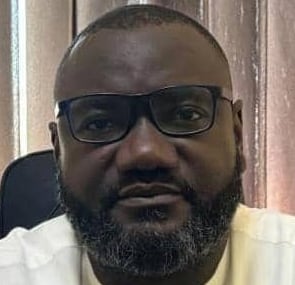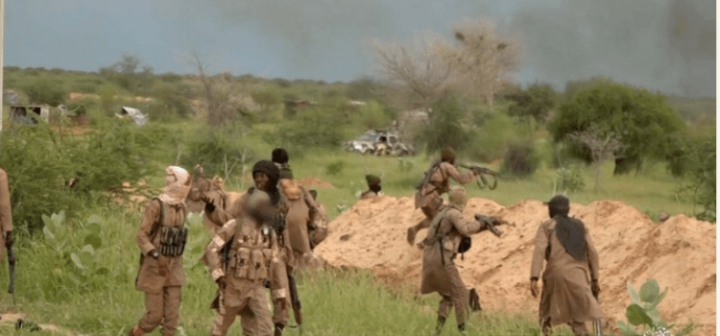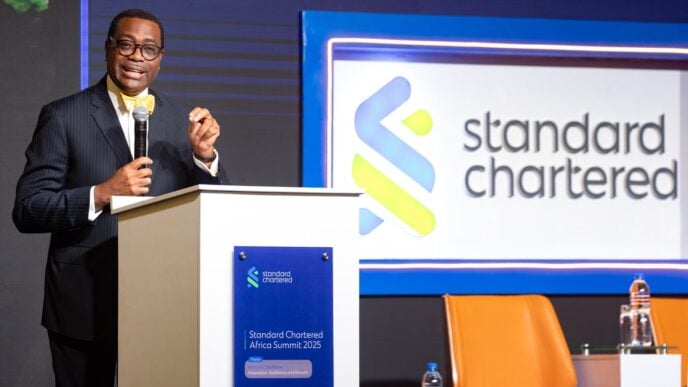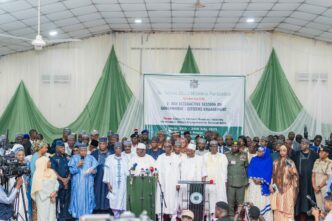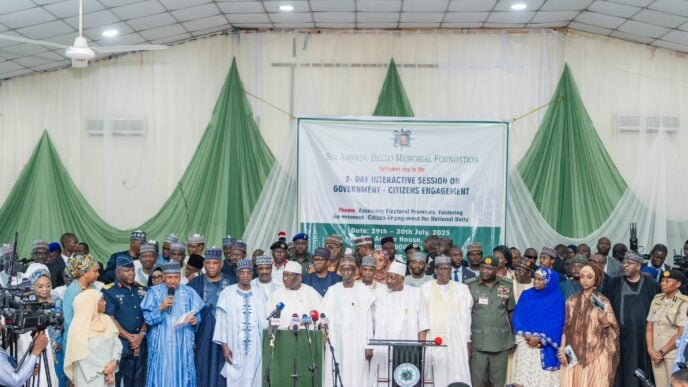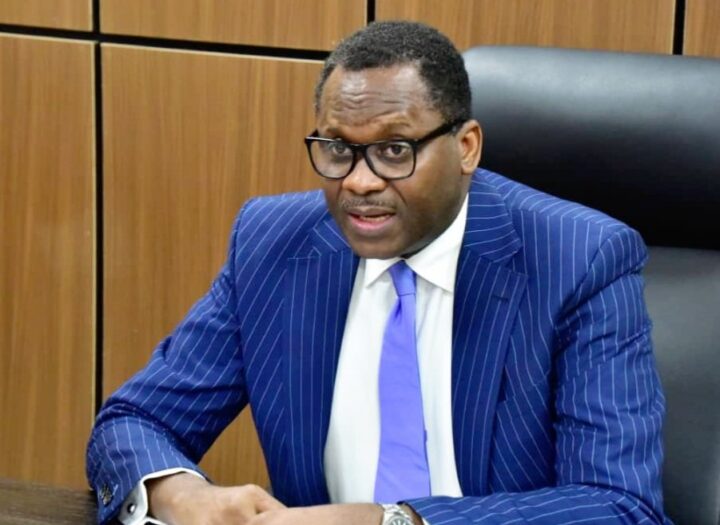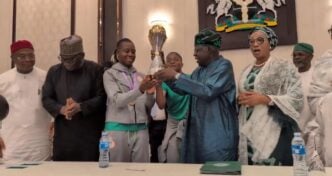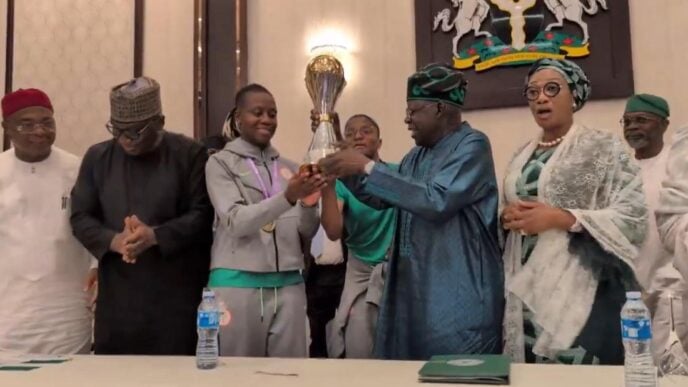As the country battles insurgency, one name readily comes to my mind whenever I have the opportunity to research counterinsurgency operations. I took the time to study his work. I realised that some of his postulations are relatable to the war against insurgency in Nigeria, and why it may be wise for our military to adapt where necessary. Insurgency is not a conventional war. It is irregular, meaning a situation where things are done differently in war situations. Winning the battle is different from winning the war. It is tactical victory versus strategic success. Tactical victory is short-term. Strategic success is a long-term concept that explains the importance of winning hearts and minds as a potent strategy in counterinsurgency operations.
This is where the postulations of David Galula, a former French military officer and counterinsurgency expert, come into play in counterinsurgency operations. In his classical work, “David Galula, Counterinsurgency Warfare: Theory and Practice”. He posited that insurgency is a competition between insurgents and the government for the support of the civilian population, as the population provides the “sea in which the insurgent swims”. He emphasised that winning the support of the local population is crucial in counterinsurgency operations.
Let’s analyse the Boko Haram insurgency using Galula’s counterinsurgency manual. The Boko Haram war has festered because it is an irregular war that tanks and bullets alone can’t address. Have we wondered why, despite the superior artillery of the Nigerian military, the Boko Haram insurgents have been able to sustain the war for close to 16 years? I have also read commentaries criticising the military’s inability to defeat the Boko Haram insurgents. Unfortunately, it doesn’t work that way. It is not a boxing match. Boko Haram can’t be defeated even with an uppercut blow. It can only be decapacitated. Insurgencies don’t end. It transforms its cause over time, adapting to changing circumstances and evolving its tactics, strategies, and ideologies. For example, the FARC rebels of Colombia have existed for over 50 years, fighting the Colombian government. At some point, it transformed into a political party and went back to hostilities with the government.
Galula postulated that the most important thing for insurgents in the beginning is a cause. “Insurgencies will strive to latch onto a cause or causes derived from political problems most relevant to the population.” Galula was right. Leadership deficit and lack of accountability created an environment conducive to the insurgency. Mohammed Yusuf, the Boko Haram founder, preached against corruption and the perceived moral decay in Nigerian society. He criticised the government for its failures and perceived injustices and advocated a system based on Islamic law (Sharia), which he believed would address these issues.
Advertisement
Galula also argued that “insurgents lack power but have the advantage regarding intangible assets such as ideology and a general lack of responsibility. Intangible assets are psychological and include winning the hearts and minds of the population. Counter-insurgents (military) hold the monopoly on tangible assets, such as material resources and legitimate power. The explanation is that though the military is powerful with all the arsenal that you can think of, however, they are obliged to uphold law and order, which limits the use of force so as not to violate the law of armed conflict that regulates the conduct of participants during armed conflicts, aiming to protect those who do not participate in hostilities and to limit excessive use of force in warfare.
For example, when Boko Haram insurgents take shelter in communities and use women and children as shields, the military can’t engage the insurgents to risking civilian casualties. It would be a violation of the law of armed conflict. In some instances, the locals would shelter them in exchange for protection, and in some instances, food and other essential supplies. They would withhold sensitive information from the military. In some instances, the military is viewed as occupiers of their land rather than their liberators. This gives the Boko Haram insurgents an edge over the military. It is from these shelters that Boko Haram insurgents monitor the movement of the military and launch attacks when their guards are down. The population must be involved in a successful counterinsurgency operation. This is Galula’s position on the local population, providing the “sea in which the insurgent swims”.
My position is that the Boko Haram insurgency would fester until the military ramps up its relationship with the population. Without the support of the population, it would be impossible to win the Boko Haram war. Galula stated that “having attained the support of the population, it is imperative to remember that this support is conditional. What you do matters, and support can be lost if your actions are unfavourable to the population.” This aligns with a population-centric approach that focuses on securing and serving the local population, rather than solely targeting insurgents.
Advertisement
This is not saying the military has not made several attempts at winning the hearts and minds of the population. It has engaged in diplomacy and other non-combatant methods such as the deradicalisation programme (Operation Safe Corridor), renovation of classrooms, provision of solar-powered boreholes in communities, conducting medical outreach programmes, provision of textbooks and writing materials, including deploying soldiers of the education corps as teachers in public schools.
Some of the efforts of the military include skill acquisition programs, provision of streetlights, renovation of primary health centres, provision of school bags, granting scholarships to indigent students, organising sporting activities, and a host of other activities. But it has not proven enough, given that these are capital-intensive projects. Most times, these projects are not captured in the budgetary allocations, hence their lack of impact. The situation would have been different if there were adequate budgetary provisions for non-kinetic operations in the prosecution of the Boko Haram insurgency.
This is where the political class must take responsibility in the prosecution of the Boko Haram war by allocating adequate resources to the military for non-kinetic operations. Non-kinetic operations are as important as kinetic operations. This must be consistent and not a one-off to maintain the trust and cooperation of the population. This is food for thought.
Ocheja, PhD, specialises in the documentation of the military histories of Nigeria and Africa.
Advertisement
Views expressed by contributors are strictly personal and not of TheCable.
